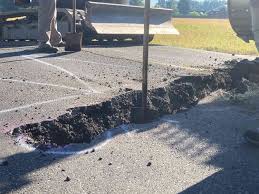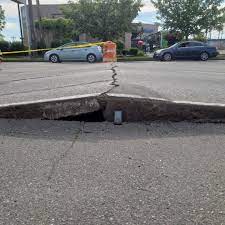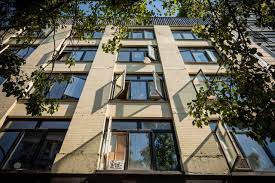 May 2023
May 2023
There is much we don’t know about how to deal with climate change. We know temperatures are getting warmer and flooding is more common. Yet what can be done to protect high-rise homes?
In our western provinces there is extreme heat killing hundreds of people, cooking fruit on trees and marine creatures. Changes to our food supply are inevitable.
 Summer temperatures in Toronto are on the rise. A good air conditioning system is the only reprieve. High-rise communities failing to maintain their HVAC systems can expect them to fail more frequently as temperatures rise and they are more heavily used. Our modern buildings are designed to rely on HVAC systems with no possibility of installing smaller air conditioners in windows.
Summer temperatures in Toronto are on the rise. A good air conditioning system is the only reprieve. High-rise communities failing to maintain their HVAC systems can expect them to fail more frequently as temperatures rise and they are more heavily used. Our modern buildings are designed to rely on HVAC systems with no possibility of installing smaller air conditioners in windows.
Glass window walls offer exceptional views. They also make it harder to heat and cool homes. When the electricity fails during warm weather, homes get exceptionally hot very quickly with no way to cool them down.
There is much that high-rise communities can do to better prepare buildings for climate change. This includes repairing buildings as they deteriorate, what we call preventative maintenance, instead of waiting for severe or complete failure. Energy metering systems help identify where energy is wasted and aid in controlling costs.
Forward thinking communities have options. Roofs can be updated to better repel heat, snow and rain. Fewer skylights offer less ways for a roof system to fail. Landscaping and plantings can be designed to survive more extreme heat and heavier rainstorms. We can incorporate canopies and umbrellas for outdoor shade.
Extreme heat can melt benches and buckle roadways or sidewalks. Balconies should be cleared of flammable items so that your home doesn’t become the next major fire. There can be reduced tolerance for those who toss lit cigarettes off balconies or ignore no smoking restrictions.
High-rise buildings can take measures to lessen flooding and the risk of a complete power failure. Small leaks can be identified sooner and repaired before they become emergency repairs. Land can be graded to direct water away from structures.
 High-rise communities can mitigate the known or anticipated impact of climate change. Waiting until it is too late will only cause hardship, frustration and greater expense.
High-rise communities can mitigate the known or anticipated impact of climate change. Waiting until it is too late will only cause hardship, frustration and greater expense.
Find Vendors in these Related Categories
- Air Quality
- Building Sciences
- Cleaning & Janitorial Services
- Cleaning Services - Ducts
- Contractors - Electrical
- Contractors - General
- Contractors - Mechanical
- Door & Lock Services
- Energy Services
- Energy Services - Efficiency
- Energy Services - Electricity
- Energy Services - Gas
- Energy Services - Water
- Engineering Services
- Environmental Consulting
- HVAC
- Landscaping and Gardening Services
- Lighting Services & Suppliers
- Mould Detection & Remediation
- Odour Control
- Parking Equipment & Revenue Systems
- Parking Management/Cleaning Services
- Paving, Concrete and Epoxy Coatings
- Plumbing Services
- Pressure Washing
- Roofing
- Roofing - Green
- Snow Removal Services
- Water Proofing & Systems







